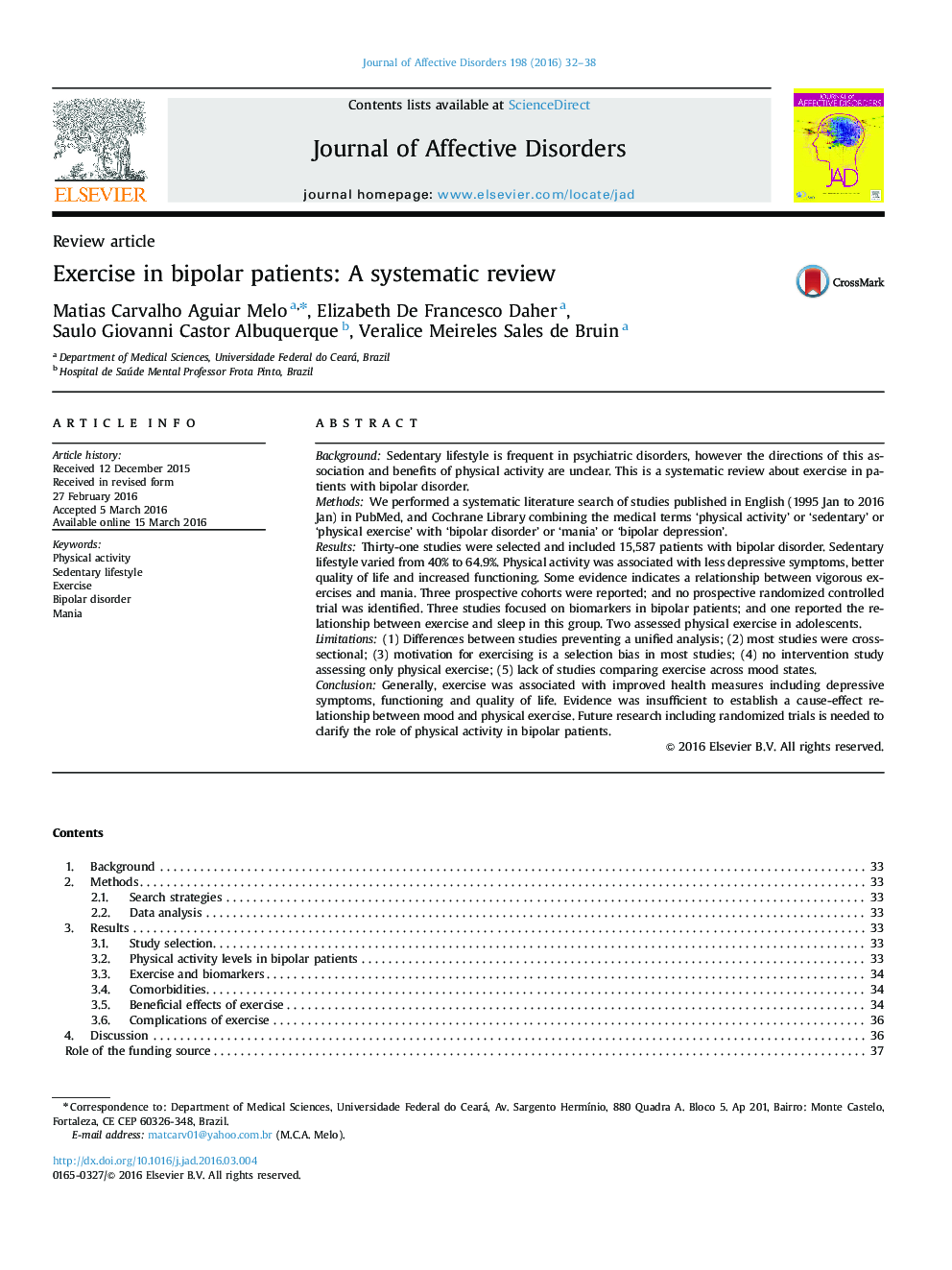| Article ID | Journal | Published Year | Pages | File Type |
|---|---|---|---|---|
| 6230180 | Journal of Affective Disorders | 2016 | 7 Pages |
â¢Bipolar patients commonly have sedentary lifestyle.â¢Duration and intensity of physical activity are reduced in bipolar disorder.â¢Exercise is associated with less depressive symptoms and increased functioning.â¢The impact of physical activity on the metabolic syndrome is uncertain.â¢An association between frequent exercise and mania is suggested.
BackgroundSedentary lifestyle is frequent in psychiatric disorders, however the directions of this association and benefits of physical activity are unclear. This is a systematic review about exercise in patients with bipolar disorder.MethodsWe performed a systematic literature search of studies published in English (1995 Jan to 2016 Jan) in PubMed, and Cochrane Library combining the medical terms 'physical activity' or 'sedentary' or 'physical exercise' with 'bipolar disorder' or 'mania' or 'bipolar depression'.ResultsThirty-one studies were selected and included 15,587 patients with bipolar disorder. Sedentary lifestyle varied from 40% to 64.9%. Physical activity was associated with less depressive symptoms, better quality of life and increased functioning. Some evidence indicates a relationship between vigorous exercises and mania. Three prospective cohorts were reported; and no prospective randomized controlled trial was identified. Three studies focused on biomarkers in bipolar patients; and one reported the relationship between exercise and sleep in this group. Two assessed physical exercise in adolescents.Limitations(1) Differences between studies preventing a unified analysis; (2) most studies were cross-sectional; (3) motivation for exercising is a selection bias in most studies; (4) no intervention study assessing only physical exercise; (5) lack of studies comparing exercise across mood states.ConclusionGenerally, exercise was associated with improved health measures including depressive symptoms, functioning and quality of life. Evidence was insufficient to establish a cause-effect relationship between mood and physical exercise. Future research including randomized trials is needed to clarify the role of physical activity in bipolar patients.
